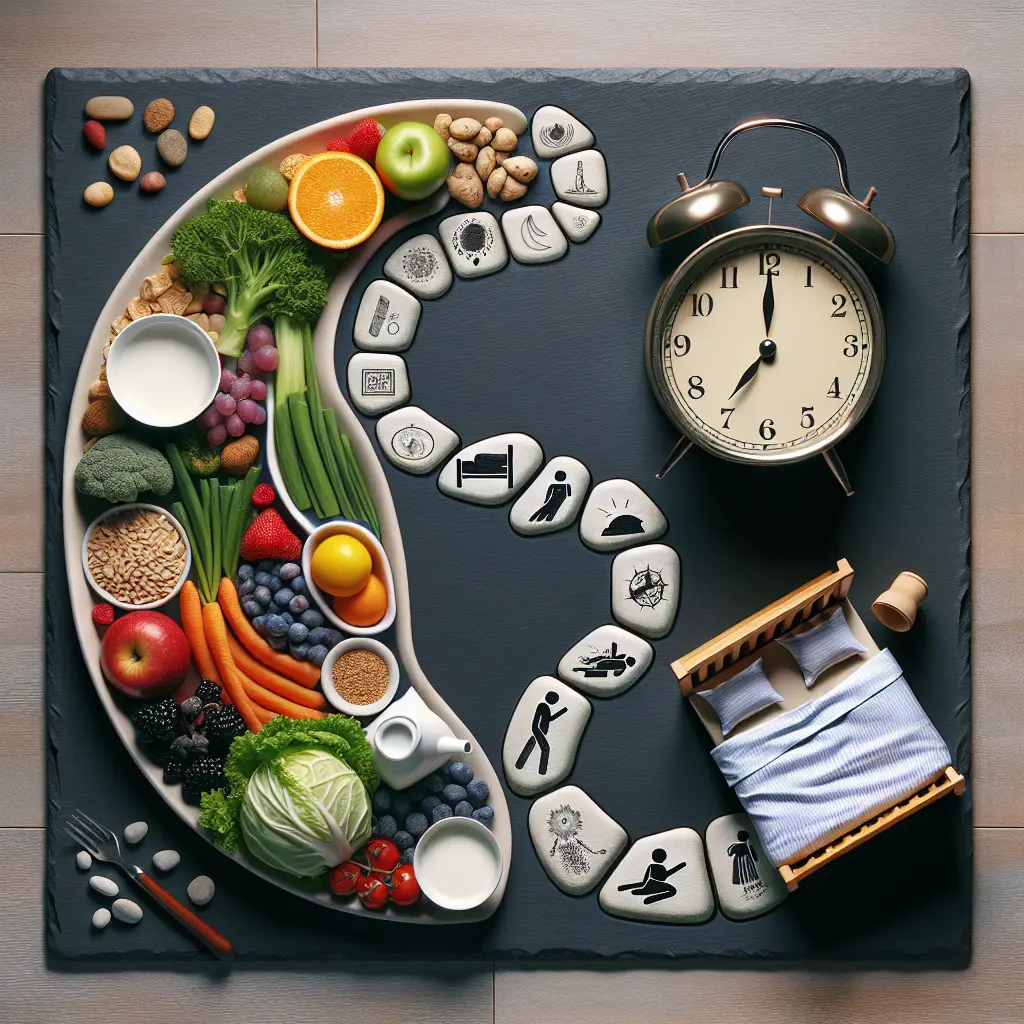
Understanding the profound influence of diet on sleep quality is not just a matter of curiosity but a critical component of maintaining optimal health. The relationship between what we eat and how we sleep is intricate, with recent findings highlighting that our eating habits and sleep patterns are more connected than we previously thought. This post delves into the impact of diet on sleep, exploring how nutrition affects sleep quality and offering insights into the best diets for promoting restful nights.
The Complex Interplay Between Diet and Sleep Quality
Recent studies have illuminated the close relationship between nutrition and sleep. It's well-documented that certain nutrients can enhance sleep quality. For instance, foods rich in magnesium, like almonds and spinach, and those high in tryptophan, such as turkey and milk, are known as natural sleep aids. These components help the body produce melatonin, the hormone responsible for regulating sleep cycles, thus promoting better sleep (Source: National Sleep Foundation).
However, the impact of diet on sleep extends beyond just eating specific foods for better sleep. The overall dietary patterns play a significant role. A diet high in sugar and saturated fat has been linked to lighter, less restorative sleep, while a diet rich in fiber, fruits, vegetables, and lean proteins has been associated with more restful sleep (Source: Journal of Clinical Sleep Medicine).
Diet-Related Sleep Disorders and Insomnia
The link between diet and insomnia is particularly compelling. Consuming high amounts of caffeine and sugar can disrupt sleep patterns, leading to difficulty falling asleep or staying asleep. This disruption can evolve into more severe diet-related sleep disorders if not addressed. Understanding the nutritional sleep aids and adjusting your diet accordingly can significantly mitigate the risk of insomnia and improve overall sleep quality.
The Influence of Ultra-Processed Foods
One of the more controversial topics in nutrition science is the role of ultra-processed foods in our health. Recent discussions suggest that these foods may affect our sleep quality, but conclusive evidence remains elusive. As researchers delve deeper, it becomes apparent that the complexity of food science combined with varying human biochemistry makes it challenging to pinpoint the exact effects (Source: Healthline).
Foods for Better Sleep
Incorporating certain foods into your diet can enhance your sleep quality. Cherries, for instance, are one of the few natural sources of melatonin, and fatty fish like salmon provide vitamin D and omega-3 fatty acids, which have been shown to improve sleep regulation. Moreover, incorporating wholesome grains like oatmeal or barley can help boost serotonin levels, facilitating a smoother transition to sleep (Source: Sleep Foundation).
How Olympic Athletes Manage Diet and Sleep
The recent victory by Olympic sprinter Gabby Thomas in the 200-meter race brings to light the rigorous routine athletes follow, including their diet and sleep management. Thomas' routine includes a balanced diet rich in proteins and carbohydrates to fuel her body while ensuring she incorporates foods known to support good sleep patterns, demonstrating the profound impact of diet on athletic performance and recovery through better sleep (Source: Olympics.com).
Dietary Tips From Experts
Ryan Reynolds' personal trainer emphasizes the importance of consistency in both diet and exercise for enhancing life quality and longevity. His advice aligns with the principles of eating a balanced diet and maintaining regular physical activity, both of which contribute to better sleep quality by regulating body rhythms and reducing stress (Source: Men's Health).
Global Insights on Diet and Sleep
Exploring various cultures offers additional insights into how different diets impact sleep. For instance, Mediterranean diets rich in vegetables, nuts, and olive oil have been associated with healthier sleep patterns compared to diets high in processed foods and meats predominant in other regions.
When to Consult a Professional
It's essential to recognize when poor sleep might be a symptom of a more serious issue. If you experience significant changes in your sleeping patterns or consistently struggle with sleep, it might be time to consult a healthcare provider. They can help determine if your dietary habits are contributing to your sleep issues or if other factors are at play (Source: Mayo Clinic).
Summing Up
The connection between what we eat and how we sleep is undeniable. From choosing the right foods for better sleep to understanding the potential negative impacts of certain diets on our rest, nutrition plays a crucial role in our overall well-being. By making informed choices about our diets, we can enhance our sleep quality and improve our health.
As we continue to explore this fascinating topic, remember that small changes can make a significant difference. Whether it's incorporating more fiber-rich foods into your meals or cutting down on caffeine consumption before bedtime, each step you take can lead you closer to achieving restful nights.
Thank you for joining me on this journey through nutrition and its effects on sleep. Here's to peaceful nights ahead!
Lucas Gregory